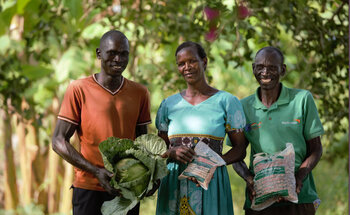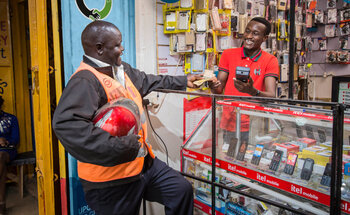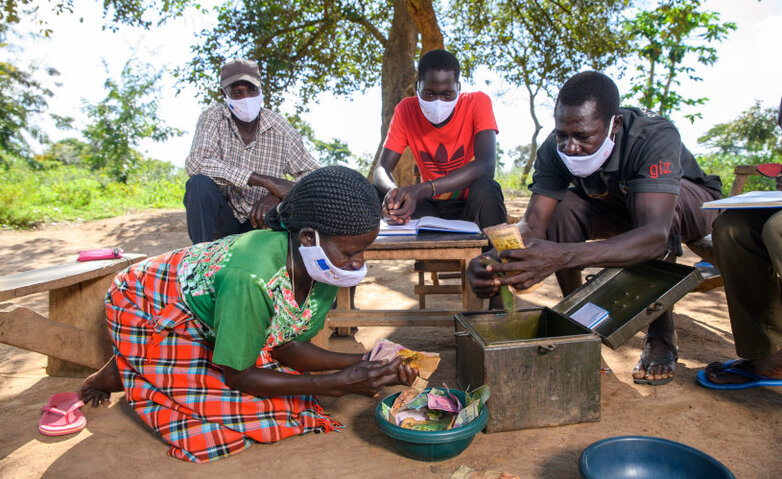Promoting rural development in Uganda
Promoting Rural Development in Northern Uganda
-
Commissioning Party
German Federal Ministry for Economic Cooperation and Development (BMZ)
-
Cofinancier
European Union
-
Country
-
Lead executing agency
More
-
Overall term
2017 to 2023
-
Products and expertise
Rural development

Context
The majority of Uganda’s population live in rural areas and rely on agriculture as a source of income. In 2021 agriculture accounted for 24 per cent of gross domestic product (GDP), proving this sector’s importance for economic development. However, agricultural productivity and processing-based value creation are low by regional standards. This is particularly true for the country’s northern regions, which are poorly developed and disproportionately affected by poverty. The agriculture sector’s poor performance manifests in low yields, high post-harvest losses, low-quality produce and inadequate knowledge.

Objective
Climate-smart agriculture-based development has improved the rural economy in selected regions of Northern Uganda.
Approach
By generating positive employment and income effects and thus reducing poverty and boosting food security, the project fosters agriculture-based development in rural regions in Northern Uganda. The aim is to harness the agricultural sector’s potential for rural economic development by promoting the integration of farming enterprises – mainly smallholdings – into value chains. Above all, the project works to create the enabling conditions required to transform and grow the rural economy. Besides building capacity in the agricultural sector, it also boosts various upstream and downstream sectors and improves access to financial services and investment.
Project activities are designed to improve the range of services on offer to rural micro, small and medium-sized businesses (MSMEs) and smallholders. Once empowered, these enterprises can contribute to poverty reduction in various districts. A key focus is on promoting the economic and strategic interests of women and young people by fostering their equal participation in local-level decision-making processes and ensuring participation in training measures (climate-smart agriculture, basic economic skills, etc.).
Last update: May 2023







